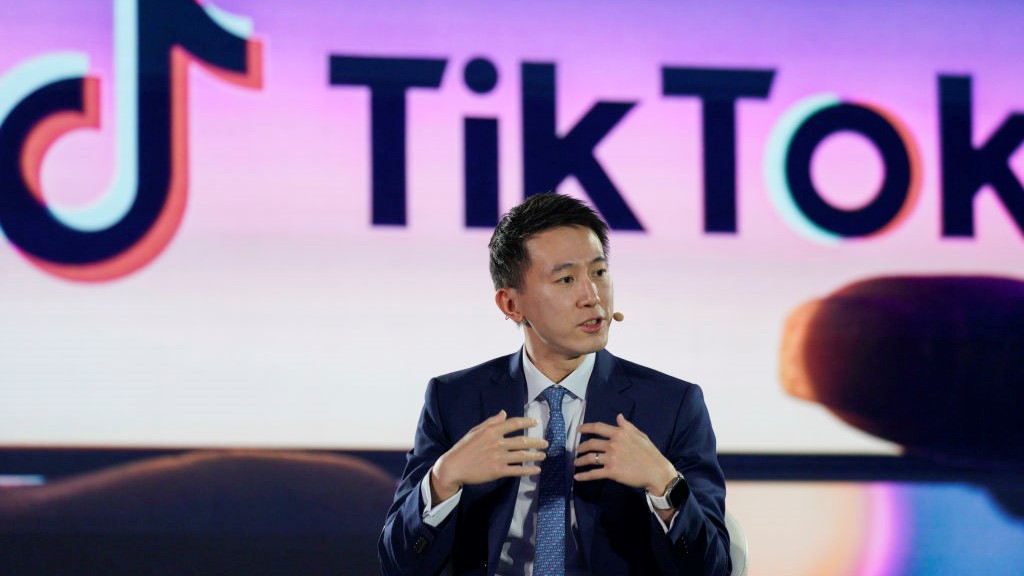Can TikTok save itself and do we want it to?
Could 150 million people be wrong?

Are you on TikTok? Let me rephrase that. Are you on TikTok this minute? If TikTok CEO Shou Zi Chew's numbers are accurate, half of the US is using the platform every month. Even if you aren't on right now, it's a good bet you will be at some point today. That habit, however, is in danger as the US Government seriously considers an outright TikTok ban for arguably the most popular social media platform in the world.
In a rare show of unity, both the Biden Administration and a normally sharply-divided US Congress agree that TikTok should either be banned or its Chinese parent company should be forced to sell it.
The concern is ByteDance's connections to the Chinese government, which can easily examine the technologies and data of any company operating within its borders.
As relations between China and the US grow colder, companies that have manufactured in China for decades, including Apple and Amazon, are slowly shifting their operations back to the US and other countries like India. But that process is slow and, for instance, the majority of the best iPhones are still produced by Apple partner Foxconn, which is based in Zhengzhou, China.
A lot of TikTok trouble
Concerns over TikTok's Chinese parentage and risks to American privacy and data date back to the Trump Administration, which was the first to take a hard stance on the increasingly popular platform.
TikTok usage exploded during the pandemic, rising from a platform primarily used by tweens and teens to entire families performing lipsynching dances together. In more recent years, TikTok has become a major source of news and information and, according to TikTok, for 5 million businesses (mostly small and medium-sized), a source of income.
Despite the popularity, the concerns over who could view our data never went away and TikTok has slowly made changes that it hoped would placate first the Trump administration and now Biden's White House.
Get daily insight, inspiration and deals in your inbox
Sign up for breaking news, reviews, opinion, top tech deals, and more.
Last year, TikTok finally moved all US data to the Oracle Cloud. However, TikTok is only now announcing that it will also be deleting any data that exists on legacy ByteDance servers.
In the days leading up to Chew's testimony, the company announced more aggressive measures, including the formation of a new company, the very on-the-nose United States Data Security (USDS) that operates separately from ByteDance.
TikTok claims it's already moving 1,000 people over from the 7,000 who currently work in TikTok's US operations. The company is also planning to form a separate board that will be populated with US citizens with, according to TikTok, cybersecurity backgrounds.
What is not on the table is ByteDance selling TikTok, which means TikTok and USDS finances will be in some way intertwined.
A sometimes troubling stream
TikTok is clearly a popular and important platform for millions, but like most social media platforms, it's not without fault.
The inscrutable algorithm can rabbit hole people in sometimes harmful ways. If you start watching videos with people who use beautification filters, you might just see more of that and ultimately come away with a distorted view of what real people look like. Clearly aware that too much of its own platform isn't necessarily a good thing, Tiktok introduced last month, a way for parents to help their teens manage their time and take breaks from TikTok.
Late last year, TikTok admitted that some employees had accessed the data of a handful of US Tiktok users.
In other words, Chew has his work cut out for him at the hearing (which started on March 23, 10AM ET) and, with little support from anyone in Congress, it's unlikely he'll have an easy time of it or walk away with any assurances that TikTok will remain in the US.
What happens if TikTok does get banned? It's clear from the various TikTok streams I follow and from the thousands who have not only built businesses but become celebrities through the platform, there will be a lot of sadness and frustration. It will also mean that millions of voices who have no other outlet or a place where they can find their peers will be silenced.
On the other hand, the Internet generation has shown an ability to switch horses with ease. They may flock to Facebook Reels or back into Snapchat or, perhaps join Tiktok knockoff Triller.
All may depend on CEO Shou Chew's big pitch.

A 38-year industry veteran and award-winning journalist, Lance has covered technology since PCs were the size of suitcases and “on line” meant “waiting.” He’s a former Lifewire Editor-in-Chief, Mashable Editor-in-Chief, and, before that, Editor in Chief of PCMag.com and Senior Vice President of Content for Ziff Davis, Inc. He also wrote a popular, weekly tech column for Medium called The Upgrade.
Lance Ulanoff makes frequent appearances on national, international, and local news programs including Live with Kelly and Mark, the Today Show, Good Morning America, CNBC, CNN, and the BBC.